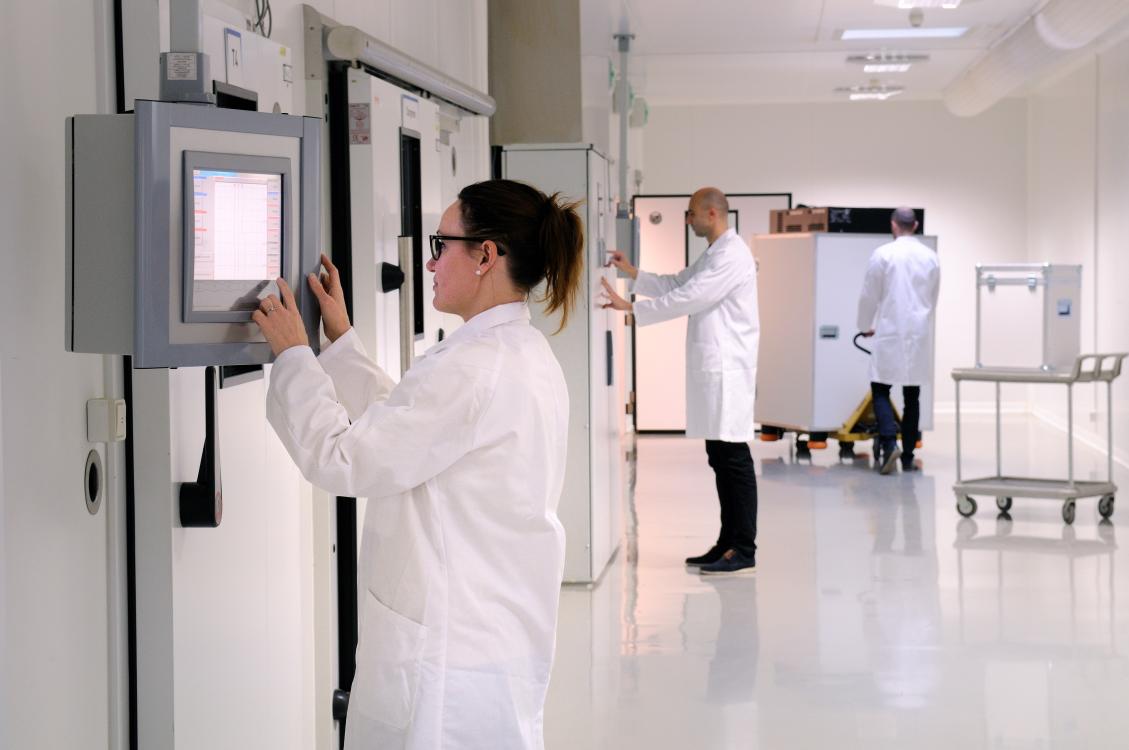THERMAL AND CLIMATIC TESTS
These tests allow you to test the resistance and functioning of your products under specific temperature and humidity conditions. ATER METROLOGIE has a range of high-performance chambers for carrying out these tests.
- Chamber volume: 1 to 170 m3
- Temperature range: -80°C / +50°C
- Homogeneity: +/-1°C
- Humidity: depending on the temperature conditions required.
>> Learn more about thermal tests and trials
THERMAL MEASUREMENTS
Thermal Conductivity
Measuring thermal conductivity helps to characterize a material's ability to conduct heat. The thermal conductivity coefficient is an indicator of the performance of your insulating materials and can help you choose the most suitable one.
ATER METROLOGIE is able to measure this coefficient under the following experimental conditions:
- Maximum sample size: 300 x 300 x 100 mm
- Test temperature range: -10°C / +75°C
- Coefficient range measured: 0.005 / 0.35 W/m.K
>> Discover thermal conductivity measurement
Thermal simulation
The multiplication of tests can be a costly operation, especially in a development phase.
Thermal simulation allows you to orientate your technological choices and optimise your tests with an initial assessment of the solution's performance, established in just a few hours.
ATER METROLOGIE has a powerful simulation tool adapted to the development of systems integrating phase change materials. This tool will allow you to determine the performance of your system by varying the temperature conditions in order to carry out an initial risk assessment.
Differential scanning calorimetry
The calorimetric study of a material allows to evaluate the energetic phenomena linked to its temperature evolution. This technique makes it possible to observe phenomena such as glass transition or phase change. It also characterizes the physical quantities associated with these phenomena (glass transition temperature, melting temperature, specific heat, etc.). A qualitative study of the results also makes it possible to evaluate the stability of the materials, their purity or their level of cross-linking.
ATER METROLOGIE has the means to evaluate these characteristics.
- Temperature range: from -70°C to +600°C
- Enthalpy accuracy: < 1%.
- Resolution: 0.25 μV
>> Discover the calorimetric study service
EQUIPMENT CERTIFICATION
ATER METROLOGIE offers qualification services for your cold chain transport and storage equipment to guarantee their compliance with regulatory and standard requirements.
Mapping of temperature-controlled equipment
ATER METROLOGIE carries out thermal mapping of your cold chain transport and storage equipment.
Renewal of ATP certification
ATER METROLOGIE is a test centre approved by Cemafroid for the renewal of the technical compliance certificate (ATP) for refrigerated transport equipment.
>> Find out more about the ATP certificate renewal service
Certicold Pharma certification
Certicold Pharma is the performance label for cold chain equipment for the transport of health products.
ATER METROLOGIE is authorised by Cemafroid to carry out the tests required for the initial issue and renewal of the Certicold Pharma label for cold chain equipment for pharmaceutical products: transport vehicles (refrigerated vehicles) and storage solutions (refrigerated enclosures and cold rooms).
>> Find out more about the Certicold Pharma certification service


